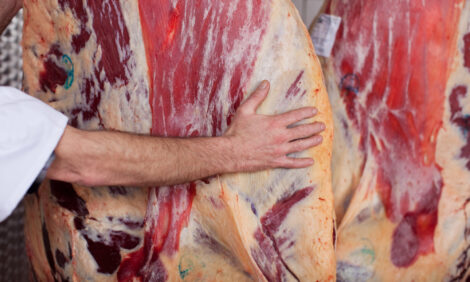



BSE Infection From Young Cattle To Mice Not Confirmed
JAPAN - Experiments on mice showed that mad cow disease in two cattle aged 21 and 23 months old was not contagious, a finding that could change attitudes about food safety.The latest finding could also influence Japan's conditions on beef imports from the United States. Japan currently limits U.S. beef imports to cattle 20 months old or younger when slaughtered.
"If the infection cannot be confirmed through the experiments between mice, then it would be difficult to verify the infectiousness (of BSE)," an expert said.
The research group, headed by Tetsutaro Sata, chief of the Department of Pathology at the National Institute of Infectious Diseases, is now compiling a detailed academic paper based on the findings.
The Ministry of Health, Labor and Welfare is also preparing to report the study to the Cabinet Office's Food Safety Commission, according to sources.
The 23-month-old cow was born in October 2001 and processed at a plant in Ibaraki Prefecture in October 2003, according to the researchers. The 21-month-old cow was born in January 2002 and processed in Hiroshima Prefecture in November 2003.
Both cows were confirmed as infected with BSE when they were processed. It is rare for cattle that young to have BSE.
Cattle are confirmed to be contaminated with BSE if an abnormal prion protein, the substance that triggers the disease, is detected in the animals.
Source: Asahi Shimbun


